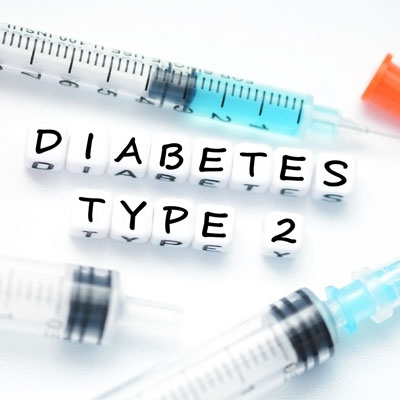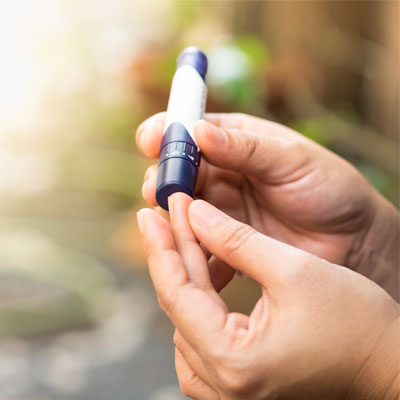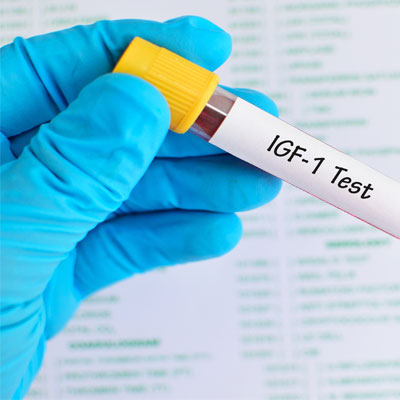Contents
- Which leads us to the question – can HGH therapy cause diabetes?
- HGH and Diabetes Type 1
- Is HGH good for diabetics also dealing with growth hormone deficiency?
- HGH and Type 2 Diabetes
- Is HGH good for diabetics dealing with type 2 and growth hormone deficiency?
- Can HGH Therapy Improve Diabetes?
- Is HGH good for diabetics to use?
Diabetes is a term that encompasses two distinct conditions – type 1 and type 2 diabetes. Although both conditions have to do with elevated blood sugar levels, the reason for that concern is based on the type of diabetes present. In this article we will answer the question is HGH good for diabetics to use, along with the benefits for each of the two Trusted sourcetypes of diabetesAmerican Diabetes AssociationGo to sourcetypes of diabetes .
The complex relationship of human growth hormone on the body’s blood sugar levels requires an understanding of how the body metabolizes glucose.
When we discuss the subject of is HGH safe for diabetics, we need to see the impact of HGH on glucose and insulin. One of the actions of HGH is to act on the liver causing cells to secrete insulin growth factor 1. IGF-1 is not the same thing as insulin, although it can work on many of the same cells as insulin.
When someone has elevated IGF-1 levels, the body will decrease insulin and glucose uptake by the tissues and cells. Although IGF-1 release is regulated by HGH, elevated insulin growth factor 1 levels will cause a decline in HGH production which will then lead to declining IGF-1 secretion.
HGH and IGF-1 influence the sensitivity of the Trusted sourceThe Role of Insuline in the BodyThe Global Diabetes CommunityGo to sourceeffects of insulin on the body’s cells which regulates cellular glucose uptake. If the tissues (cells) cannot take in and utilize circulating glucose for energy, it results in an excess of blood glucose levels which can lead to diabetes.
Although the process sounds simple enough, it is not what it seems. HGH can impact blood sugar in two ways:
- HGH deficiency can lead to hypoglycemia (low blood sugar)
- One of the HGH diabetes side effects is increased insulin sensitivity causing too much glucose uptake by the cells in those individuals who receive HGH therapy
Which leads us to the question – can HGH therapy cause diabetes?
One potential side effect of human growth hormone use is type 2 diabetes. However, the risk of that occurring is most likely for people who abuse HGH injections for non-medical purposes. We see increased diabetes risks in those adults who use human growth hormones for sports or bodybuilding-related benefits. Increasing HGH levels higher than normal presents many problems for otherwise healthy adults.
HGH and IGF-1 can impact the cells that take in glucose for energy.
HGH and Diabetes Type 1
In type 1 diabetes, the problem stems from the pancreas which does not produce the necessary amount of insulin required to stimulate the uptake of glucose by the cells. Instead, blood sugar levels rise, and the individual requires insulin therapy. Increased abdominal fat is often an issue. Adults dealing with low levels of growth hormone, diabetes type 1, and an increased body mass index (BMI) often face a lack of energy, increased insulin sensitivity, and hypoglycemic attacks.
A 2002 study out of Linköping University examined adults with type 1 diabetes and low insulin growth factor 1 (and HGH) levels. Because both type 1 diabetes and HGH deficiency are indicators of low IGF-1 levels, it was hypothesized that increasing the level of HGH for type 1 diabetes patients could improve symptoms and well-being. After establishing reference values for IGF-1, 18 patients between the ages of 20 and 60 received individualized dosing of recombinant HGH. Their results were compared to 17 untreated healthy subjects. The dose required by the females in the study was twice that of what men received. Elderly patients needed lower doses. Following six months of treatment, changes were noted in lipids, insulin sensitivity index, and blood glucose levels. Patients receiving HGH therapy experienced a 10% increase in muscle strength.
Is HGH good for diabetics also dealing with growth hormone deficiency?
In another study, this time of 5 patients with an average age of 41.6 years +/- 3.8 years who received HGH therapy for six months, the results were as follows:
- Improved body composition – significant decrease in fat mass and increase in lean body mass
- Reduced frequency and severity of hypoglycemic events
- Enhanced quality of life
HGH therapy for adults with growth hormone deficiency and type 1 diabetes can offer significant benefits.
HGH and Type 2 Diabetes

For patients dealing with low levels of growth hormone & diabetes type 2, HGH therapy can help improve glucose uptake by the cells.
In one study on the use of HGH for diabetics dealing with obesity, participants underwent HGH therapy, diet restriction, and exercise for a period of 12 weeks. Benefits included:
- Significant decrease in visceral fat area – subcutaneous and thigh muscle
- Increase in lean body mass
- Significant decrease in triglyceride, total cholesterol, fibrinogen, plasminogen activator inhibitor-1 (PAI-1), and free fatty acid (FFA) levels
- Decrease in insulin levels
Part of the problem we see today is the elevated amount of sugar consumed by the typical American adult. Sugar is not always taken in as “sugar” but is often disguised as carbohydrates, fats, and other unhealthy foods. In type 2 diabetes, too much sugar in the blood causes an excess of insulin secretion by the pancreas. Since insulin is also antagonistic towards HGH and IGF-1, it can lead to further concerns for growth hormone levels.
Is HGH good for diabetics dealing with type 2 and growth hormone deficiency?
Yes, HGH can help make the cells more sensitive to the effects of insulin to increase glucose uptake.
HGH therapy can improve cellular glucose uptake in adults with type 2 diabetes.
Can HGH Therapy Improve Diabetes?
The potential benefits of HGH for diabetics with growth hormone deficiency should not be overlooked when prescribing treatment. Growth hormone, and subsequently IGF-1, is crucial for the body. Its benefits extend to the muscles, bones, internal organs, metabolism, immune system, heart, brain, and libido. HGH can improve sleep and increase energy levels. Best of all, it increases glucose production in the liver and skeletal muscles and reduces the uptake of glucose in adipose tissue.
When prescribed in the appropriate amount for each person’s needs, the answer to is growth hormone good for diabetes is yes; it can offer multiple benefits. Anytime that you can reduce visceral fat stores and improve the body’s use of glucose, you enhance overall health. HGH use has been shown to improve insulin resistance and glucose homeostasis.
Only a doctor with extensive experience in prescribing hormone therapy should provide HGH treatment to adults with or without diabetes.
Is HGH good for diabetics to use?
The answer is often yes, depending on the individual situation. Please contact our hormone clinic for a confidential, no-cost consultation.
HGH offers significant benefits for adults with diabetes.
- Dandan Wang, PhD, Naicheng Zhao, Ziyang Zhu
- Nathaniel Berry, Monica Hubal, Laurie Wideman, PhD, MS, BSc
- Marije van Dijk, Ellen Bannink, MD, PhD, Yvonne K van Pareren, Paul G.H. Mulder, Anita C S Hokken-Koelega
- J M Holly, S A Amiel, R R Sandhu, L H Rees, J A Wass
- R Vigneri, M.D., S Squatrito, M.D., V Pezzino, M.D., S Filetti, M.D., S Branca, M.D. and P Polosa, M.D.
- Vivian A. Fonseca, MD, M. Sue Kirkman, MD, Tamara Darsow, PHD and Robert E. Ratner, MD
Recombinant human growth hormone in treatment of diabetes: report of three cases and review of relative literature
The effects of an acute exercise bout on GH and IGF-1 in prediabetic and healthy African Americans: A pilot study investigating gene expression
Risk factors for diabetes mellitus type 2 and metabolic syndrome are comparable for previously growth hormone-treated young adults born small for gestational age (sga) and untreated short SGA controls
The role of growth hormone in diabetes mellitus
Growth Hormone Levels in Diabetes: Correlation with the Clinical Control of the Disease
The American Diabetes Association Diabetes Research Perspective









